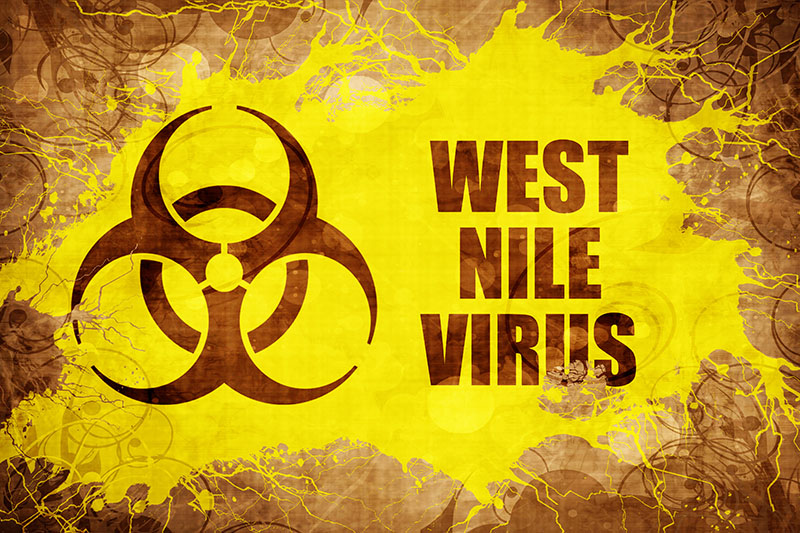
Multiple People in Harris County Infected with West Nile Virus, Hundreds of Mosquito Samples Test Positive
Harris County Public Health’s (HCPH) Mosquito and Vector Control Division has identified a significant increase in West Nile virus (WNV), with 520 positive mosquito samples across 168 of its 268 operational areas. As of July 27, seven human cases of WNV and two travel-related dengue cases had been reported to HCPH in unincorporated Harris County (outside the City of Houston). HCPH urges residents to protect themselves and their loved ones against mosquito-borne illnesses. Then as of August 6, a total of nineteen human cases of WNV had been reported to HCPH in unincorporated Harris County.
A dashboard on the human case counts of mosquito-borne diseases reported in HCPH’s jurisdiction of unincorporated Harris County (outside the City of Houston) this year will be available on the department’s website here. The dashboard will be updated weekly.
West Nile virus is the leading cause of mosquito-borne disease in the continental United States. It is usually transmitted to humans through the bite of an infected mosquito. The virus spreads when a mosquito bites an infected bird and then bites a person. Cases of West Nile virus usually occur during mosquito season, which starts in the summer and continues through the fall. However, Harris County has experienced an earlier rise in mosquito populations due to the warmer spring season.
"Diseases transmitted by infected mosquitoes are a serious threat in our area,” said Ericka Brown, MD, MBA, Local Health Authority for HCPH. “While most people infected by West Nile virus experience mild or no symptoms, some can become very sick. Protecting yourself and your loved ones is crucial, especially when mosquitoes are so prevalent this summer. If you or a loved one experiences any of the symptoms of West Nile after a mosquito bite, contact a healthcare provider immediately.”
Some individuals who get sick from WNV may develop a fever, headache, body aches, nausea, rash, and vomiting. In severe cases, WNV can lead to encephalitis (inflammation of the brain) and meningitis (inflammation of the lining of the brain and spinal cord). Older adults and individuals with weakened immune systems are at higher risk of severe complications from WNV.
HCPH’s Mosquito and Vector Control Division also tests mosquito samples for diseases other than WNV through its virology lab, such as dengue, chikungunya, St. Louis encephalitis, and Zika. However, WNV is the most common mosquito-borne disease in Harris County every year.
“We are seeing more West Nile virus-positive mosquito pools this year than in previous years,” said Maximea “Max” Vigilant, DrPH, MPH, Director of the Mosquito and Vector Control Division. “This is partly due to our implementation of a more sensitive testing method, qPCR, which allows us to test a larger number of mosquitoes, and hence detect any virus circulating in the populations.”
KNOW THE 3 Ts: TIP, TOSS, TAKE ACTION
Protect yourself, your loved ones, and your pets! As temperatures rise in Harris County, so do mosquito populations. HCPH wants residents to remember the 3 Ts when it comes to mosquito control in their area – “Tip, Toss, Take Action”.
Tip
Follow these simple tips to prevent mosquito breeding sites around your home, especially right after a weather event:
- Tip or empty standing water from pet bowls, flowerpots, tires, buckets, and other containers.
- If you have a birdbath, change its water every three to five days.
Toss
Mosquitoes can also breed where stagnant water might be hidden from the human eye. Practice the following tips to reduce mosquito breeding in those covered spots:
- Toss out debris, trash, and other unwanted items around your home.
- Clean out clogged drains and rain gutters.
- Keep outdoor trash bins closed and avoid overfilling them.
- Do not sweep lawn clippings, leaves, or litter into storm drains. This will prevent water from flowing, creating ideal mosquito-breeding sites.
Take Action
There are also several ways to take action and reduce mosquito populations.
- Use insect repellant. When using mosquito repellent, keep these points in mind:
- Apply an EPA-registered repellent to yourself and your loved ones when outdoors.
- Use as directed by the label instructions on the product.
- Do not use insect repellents on babies younger than 2 months.
- Do not use products containing oil of lemon eucalyptus (OLE) or para-menthane-diol (PMD) on children younger than 3 years of age.
- When possible, wear long sleeves, pants, and socks.
- Treat standing water with larvicides in areas where water cannot be covered, emptied, or removed and will not be used for drinking. Larvicides are a pesticide that kills mosquitoes in their early stages of development (larvae) before they become biting adults. They are sold in the form of liquid tablets, pellets, granules, and briquettes and are available in most hardware stores. Larvicides are safe to use for the environment. Follow the instructions for the larvicide product you are using.
- Make sure to completely turn off outdoor faucets to prevent leaks; fix any faucets that are constantly leaking.
- Keep tight-fitting screens on doors and windows.
For other mosquito prevention tips and resources, visit hcphtx.org/PreventTheBite.
Source: HCPH



